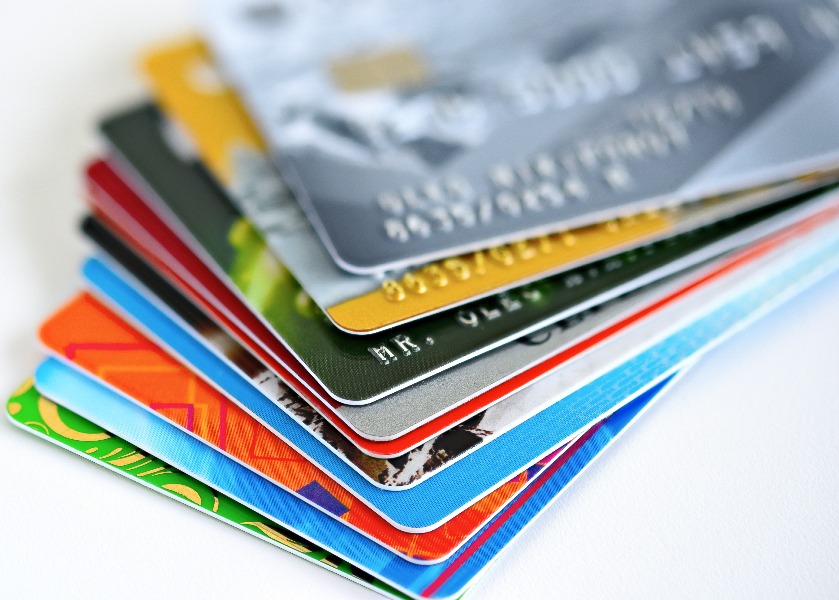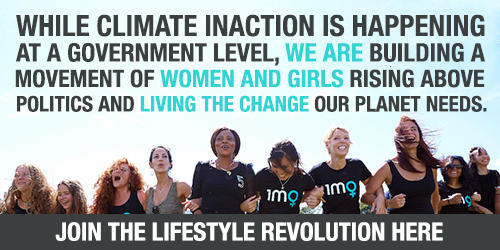The world of banking can be confusing. Often, we don’t realise where our money is going after we put it in the bank. At least I didn’t.
When I researched my very first bank account it seemed like they all offered very similar rates, fees and charges. I ended up just choosing the same bank my parents were with. What I never stopped to consider was whether my bank could be using my money to harm the planet. As it turns out, it was. The good news is, it wasn't hard to find this out and in hindsight, switching my bank account was one of the easiest things I've done to live a more climate-friendly life.
What prompted me to switch?
I decided to switch banks after a chance conversation with a woman in a cafe. At that point in my life I considered myself relatively interested in the environment, and thought I knew a fair bit about the challenges it was facing. However, I wasn't really taking any active steps to reduce my environmental impact.
This was back in 2015, when the first approval for the Adani Carmichael coal mine had gone through. I'm ashamed to admit it, but back then, Adani was a word I vaguely recognised from the news headlines, but I had no idea what it actually meant.
Thankfully, I was about to get a full rundown. As it happens, the woman I met in the cafe was pretty heavily involved in the campaign against Adani. Over breakfast, she gave me a quick summary of the project - the largest proposed coal mine in Australia - which would have serious implications to our local environment as well as global carbon emissions (how had I not heard about this?). She then told me I should switch banks.
Switch banks? I responded, confused. What on earth did my bank have to do with this billion dollar mega-mine? The woman could sense my confusion. She patiently explained that certain banks in Australia invested their money into the fossil fuel industry, and some did not. So my bank at the time (Commonwealth Bank) could have been using my money to help build this very controversial, very damaging coal mine.
I was shocked. I'd never really thought about what my money did while it was in the bank. I suppose I just thought it sat there gathering dust. But no. The bank was using my money to invest in an industry which I wholeheartedly didn't agree with, and which negatively impacts an enormous number of people.
"So who should I switch to?" I asked her eagerly.

How to choose your new bank
After suggesting a couple of potential banks, she recommended that I go and do my own research online. I thought it would be a huge process to work out who invested in fossil fuels and who didn't, and that I would be sifting through webpages and fineprint for hours. I was pleased to discover that there was already a website that had done the hard work for me - Market Forces.
This website gives you a list of every bank in Australia and where they stand on investing in fossil fuels. From there you can compare banking pages individually, or use a website such as Canstar to compare interest rates and find the best sustainable bank for you.
Next step: Open your new account and transfer everything across
Once you've chosen a bank that suits you best, you can either go into the local branch to set up a new account, or many banks will let you set up accounts online with your passport or driver's license.
After your new account is set up, it's a simple transfer from your old bank account to your new one. Keep in mind that many banks have a limit on the amount you can transfer per day, so you might have to change the daily limit in your internet banking before you transfer, or you transfer bit by bit into your new bank account. You'll also need to let your employer know that they need to pay into a new account, and make sure any direct debits, like your phone or internet bills are transferred over to your new account.
Now that your new bank account is full of all your savings, it's time to close the old one. This usually can't be done online, it will require either a trip to your nearest branch or a phone call, which is a little less convenient, but the best part about this is that it allows you to express your opinion as a consumer. I guarantee they will almost always ask you why you are choosing to close your account. This is the part where you tell them with confidence that you want your money with a bank that doesn't support fossil fuels.
Why switching banks is so empowering
Being able to exercise your power as a consumer is extremely liberating. It's a way to send a message to big businesses that climate action is a priority. It's also one of the easiest things I've ever done in my efforts to tackle climate change. Behavioural changes such as eating less meat and dairy and driving less were things I had to focus on for a while before they became habit. Changing which bank you do business with is something you'll probably only have to do once and not think about ever again.
That being said, some small banks who previously chose not to invest in fossil fuels, have since begun investing in the industry as they've grown bigger. So it's safest to choose a bank from the get-go who have a clear policy about not investing in the fossil fuel industry. Market Forces gives detailed information about each bank's position on the matter, so you can choose one who firmly commits to not funding these industries.
Cutting off fossil fuel companies at the source of their funding is crucial to dismantling their power. Although your bank account might not be enough to fund a coal mine, all of our money combined can be. Let's tell our banks that climate action is important to us and let's put our money where it can't be used to fund fossil fuels.
Natalie is a research assistant in the field of marine ecology. She is the recipient of the 1MW Tara Hunt Fellowship. Outside of work she volunteers for several marine conservation organisations as she has a passionate love of the ocean and enjoys kayaking, scuba diving and snorkelling on her days off.
Read this next: How To Pick The Best Ethical Super Fund For You
[photos: Shutterstock, Unsplash]

